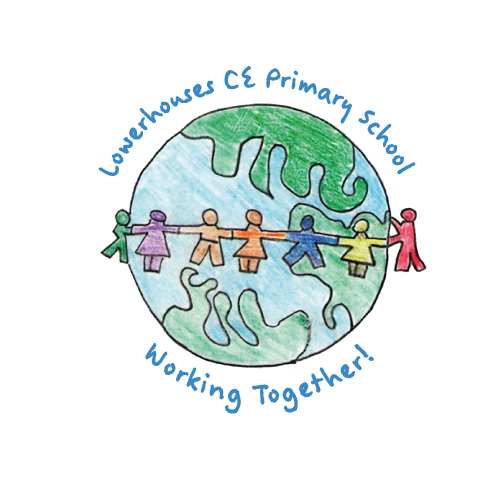History
At Lowerhouses CE Primary School, our History curriculum gives children a well‑rounded knowledge of the past and its events, helping them understand the world today and appreciate their own heritage. We aim to inspire curiosity and fascination about Britain’s past and the wider world.
Through engaging lessons, pupils learn about significant people, ancient civilisations, and important events, while developing skills in enquiry, analysis, and critical thinking.
To make progression clear and accessible, each History topic page now includes a Learning Journey. These journeys show how knowledge and skills build step by step across year groups, helping children, parents, and staff see the pathway of historical learning from EYFS through to Year 6.
By following these journeys, pupils can connect their learning across themes such as prehistoric life, the Egyptians, Romans, Georgians, and World War II, while also exploring local history and significant individuals. This structure supports curiosity, critical thinking, and a deeper understanding of how history shapes the present, ensuring children leave with secure knowledge and the ability to apply enquiry skills confidently.
History Learning Journey
🔎 Intent
-
Provide all children with access to a high‑quality History curriculum.
-
Inspire curiosity and fascination about Britain’s past and the wider world.
-
Ensure pupils are equipped with knowledge about:
-
The history of Britain and how it has been influenced by the wider world.
-
Significant aspects of world history, including ancient civilisations and empires.
-
Changes in living memory and beyond living memory.
-
The lives of significant people in the past.
-
-
Teach children the importance of historical enquiry and asking questions to learn more about the past.
🧭 Implementation
-
History is taught through a historical enquiry approach.
-
Clear progression of knowledge and skills from Early Years to Year 6.
-
Lessons encourage children to:
-
Think critically.
-
Investigate sources.
-
Write extended pieces to answer enquiry questions.
-
-
Learning is scaffolded to help children recall previous knowledge and make connections.
-
Subject‑specific vocabulary is taught to integrate new knowledge into larger concepts.
-
Enrichment activities include:
-
Historical artefacts 🏺
-
Visitors and workshops
-
Educational visits
-
Commemorative events such as Remembrance Day
-
🎯 Impact
-
Formative assessment used in lessons (questioning, marking, observation, challenge).
-
At the end of each unit, children demonstrate understanding by answering the enquiry question.
-
Outcomes can be presented in different ways: oral responses, posters, presentations, or written answers.
-
Teachers record outcomes and address misconceptions or gaps in learning.
-
By the end of the curriculum, children will:
-
Have secure knowledge of Britain’s past and world history 🌍
-
Understand how history shapes the present.
-
Use historical vocabulary confidently.
-
Apply enquiry skills to analyse and evaluate evidence.
-
📚 History Parent Resources
| 🌟 Resource | 📝 What it Offers | 🔗 Link |
|---|---|---|
| BBC Bitesize – KS1 & KS2 History | Interactive lessons, videos, and quizzes covering key historical topics. | BBC Bitesize History |
| National Geographic Kids – History | Articles and features on ancient civilisations, famous figures, and world events. | National Geographic Kids History |
| Historic England – Education Resources | Free teaching packs, activities, and guides for exploring local and national history. | Historic England Resources |
| Twinkl – History for Parents | Printable worksheets, timelines, and activities to support learning at home. | Twinkl History Resources |
| Oxford Owl – History Guide | Parent guide explaining how History is taught in primary schools, with tips for support. | Oxford Owl History |




